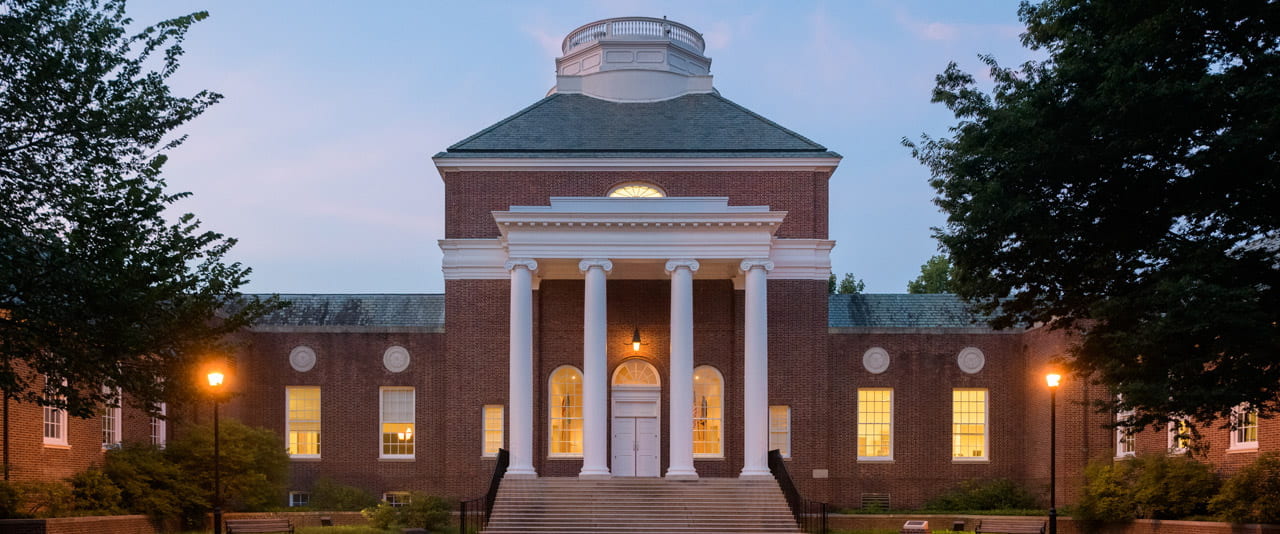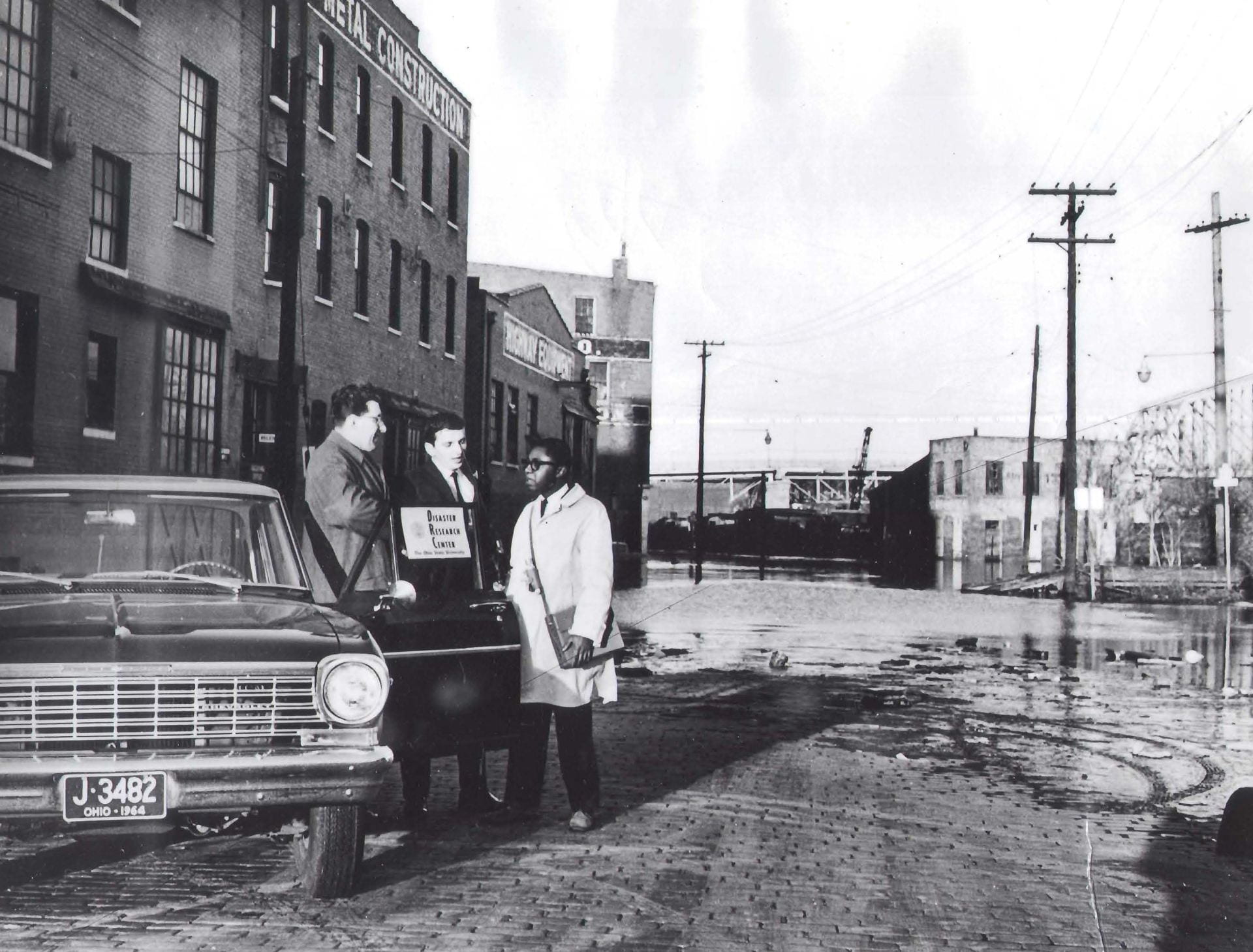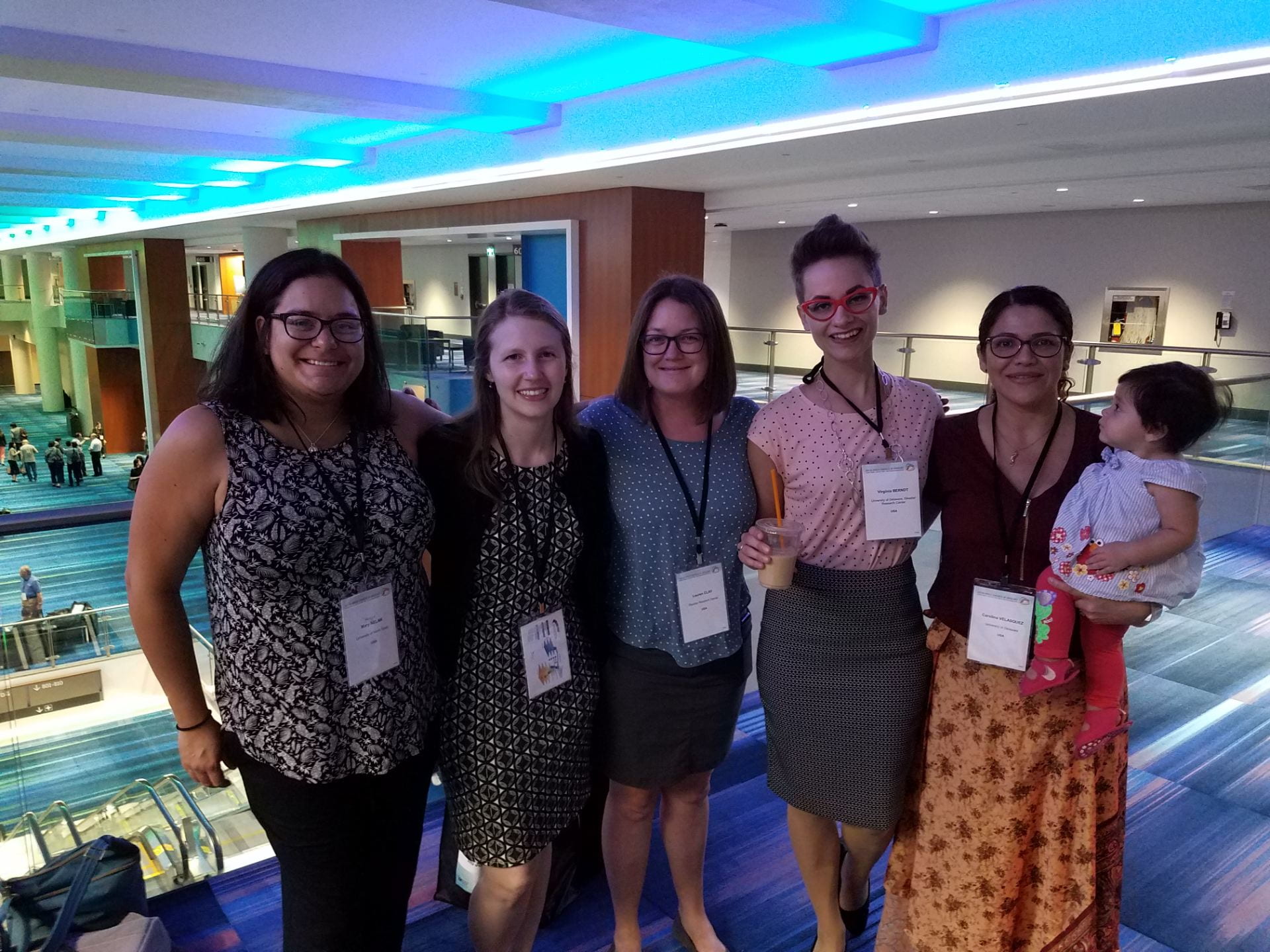Disaster Research Workshop:
Innovating for an Imagined Disaster Future
Drones, genetic testing, artificially intelligent information assistants, mobile phones, video chats, bionic limbs: at one time, these were things of science fiction. Today, they are part of modern society. As the world emerges from a global pandemic that caused millions of confirmed deaths, froze international travel and the supply chain, and led to (or revealed) political divides on the very nature of the threat, it is clear that planning for the disasters we know is insufficient. While we continue to try to solve the problems of today, the disasters of the future lurk in the distance. As devastating as the COVID-19 pandemic was, it is not difficult to imagine how it might have been much worse. Imagining those future disasters, and suggesting innovative paths forward, is paramount for disaster science.
ABOVE: One of the first DRC field studies was in Cincinnati, when a team (left) responded after a 1963 flood.
As the Disaster Research Center celebrates its 60th anniversary, we call on the community to join us in May, 2024 in Newark, Delaware. May 2nd will include a graduate student workshop, and a researcher-in-residence program. Friday and Saturday will include two full days of a range of workshop activities. An optional field trip will also be available on May 5th.
Call for Proposals and Submission

We seek workshop submissions that re-orient our studies of disasters in directions that take bold gambles. The purpose of this workshop is to provide a venue for scholars to gather and think of new theories, directions, methods, and departures.
We will continue to consider submissions until March 1st, although we encourage submissions by February 15th for full consideration.
Poster presentation submission deadline extended to April 1!
Submission indicates your commitment to attend the meeting.
View the types of categories below. We welcome you to submit one (or several) types of submissions for the workshop.
Featured presentations
Submissions in MP4 or MOV format for 20-minute TED-Talk style presentations that advance new or provocative directions for the field. Submissions can be recorded by Zoom or cell phone, and should include the presenter reading the proposed script. The submission for consideration does not need to be performed in formal presentation-style. Presentations given at the workshop will be recorded and publicly available after the conference, to maximize the dissemination of ideas. Guidance on presentations will be provided in advance of the meeting.
Films and documentaries
The workshop will have space to screen films, videos, and documentaries. If you would like to screen your film or documentary, please submit a short description of the material, its length and format, confirm that you have copyright or permission to screen it at the workshop, and – if available – a URL or link to the film.
Activities
We seek submissions for innovative activities, games, or demonstrations. Submissions should include a detailed description of the activity, who will be running the activity, and the space or set-up requirements that would be required. In most cases, those running the activity should be prepared to bring required materials and be available for set-up.
Poster-session
Submissions are open for posters. Posters should not exceed the dimensions of 4×4. Presenters are encouraged to minimize text and include images, figures, tables, and quotes to draw in their audience.
Book submissions
A “meet the authors” session will be held where authors have the opportunity to sell and autograph copies of their books as well as engage in discussions with attendees. Please name your book and indicate if you want to sell copies or simply have a display copy available. (Submission by April 1)
Panel submission
Note, panelists or discussion leads will be limited to no more than two Powerpoint slides per person, which must be submitted in advance of the workshop.
Track A: We seek abstracts on the convergence of knowledge: How has early disaster research led us to the advancements of today. Panelists are asked to thread a connection from early research to the innovative work they are presently advancing in an effort to show how incremental research can push the boundaries of the field over several decades.
Track B: We seek abstracts on E.L. Quarantelli and Russell Dynes – co-founders of the Disaster Research Center – and their work. Submission can speak to their impact on the field, on a particular theory or concept either developed, on their influence on current approaches, or another area that links to either of their work.
Track C: We seek abstracts to lead or participant in a discussion session on any topic relevant to the workshop theme. Abstracts should not simply report on an existing project but seek to advance the field or facilitate conversation amongst attendees.



